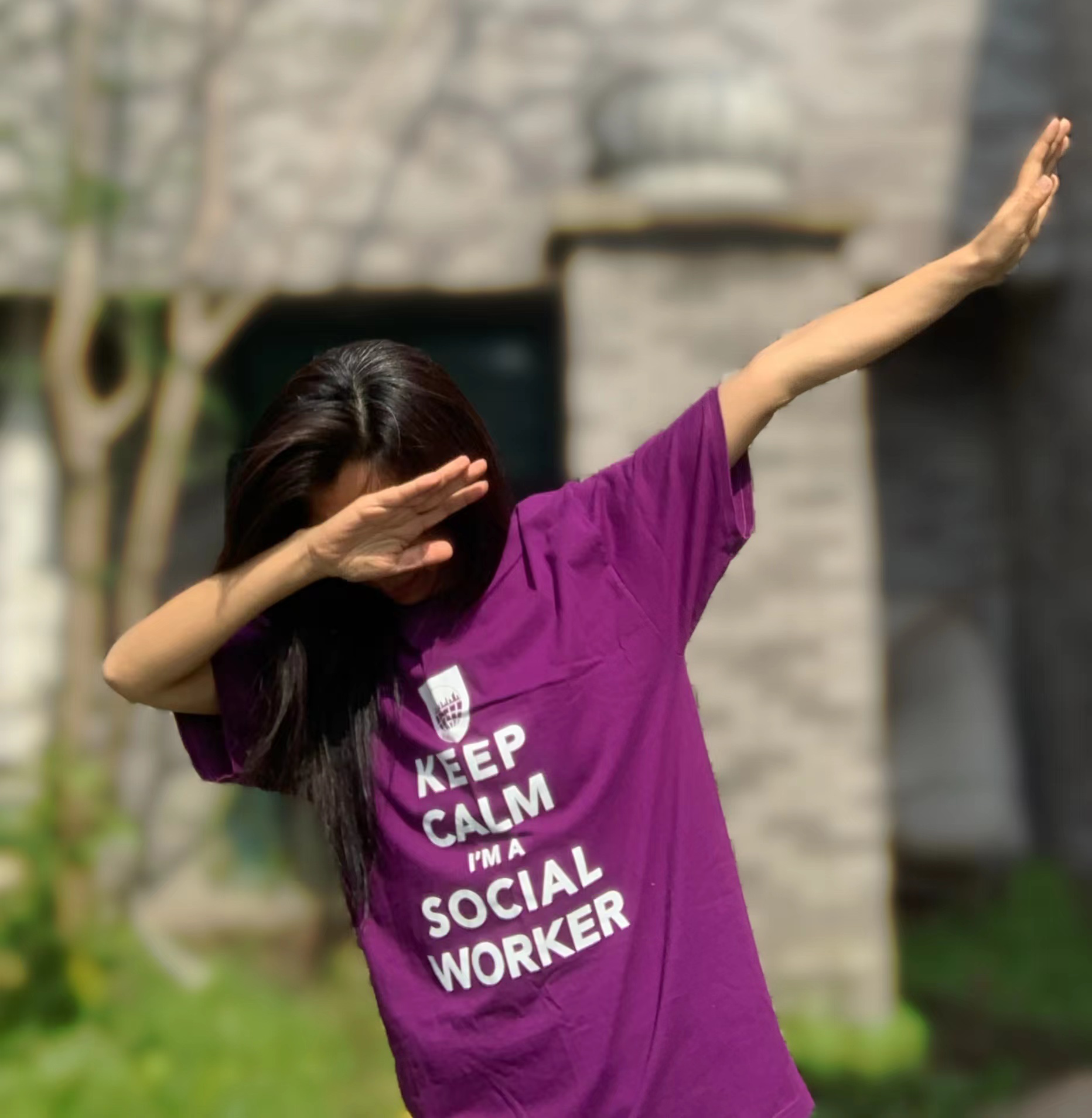Professor Qian Xie is currently serving as a Clinical Assistant Professor of Social Work and Field Coordinator at NYU Shanghai. Bilingual in Chinese and English, Professor Xie is an experienced practitioner with expertise in social services for children, parents, the elderly, and people with disabilities.
Sense and Sensitivity
Xie teaches the course, Practice and Field, which comprises two components, one delving into theories of social work, while the other one dedicated to practical issues faced by students in their daily practice. One issue that frequently arises is that of cultural differences. In a case discussed, the mother claimed to constantly hear a voice in her head urging her to beat her child, even though she never acted on it. While the students unanimously agreed that the mother was experiencing auditory hallucinations, they had differing views on whether to report the case to the relevant authorities. Some students believed that having the authorities involved was essential to reduce the risk of potential child abuse, while the others deemed it unnecessary as the mother was not likely to really act.
During the discussion, Xie steered the conversation towards the differences in perspectives among the participants. Interestingly, most students who recommended reporting the child protection case to the authorities were from the US, citing mandatory reporting regulations, while many Chinese students emphasized the importance of family union and motherhood, which are deeply valued in Chinese culture. “I welcome the fact that a case study evolved into insightful conversations on cultural differences.” Xie emphasized, “While standards are necessary, they must be applied sensitively. We should always take into account the difference in race, gender, culture and other factors.”

The Real World
Besides teaching classes, Xie has a crucial responsibility of coordinating field placements for MSW students, most of whom have had limited exposure to social work prior to joining the program. Field placement is therefore the students’ first opportunity to apply their theoretical knowledge and practical skills in a real-world setting. "Even after all the learning and simulation in the classroom, many students still feel at a loss or even shocked when they start their field placement.” Xie acknowledged.
Students often find, during field placement, that as a social worker they need to work both independently and collaboratively with colleagues from diverse backgrounds, which is quite challenging. When people from different backgrounds work on the same case, it is possible for them to have conflicting assessment and judgment, leading to varied preferred actions. For instance, psychological professionals and social workers may give contradictory opinions. Additionally, students are sometimes assigned tasks that they consider trivial and "non-professional" during field placement. "The gap between theory and practice can be very disconcerting," Xie commented, "The real-world practice is complicated. Field placement is a great opportunity for students to ask questions, adapt, and disagree. Those intense experiences are the necessary pain that students have to endure to become a qualified social worker."
Xie believes field placement also offers students an opportunity to gain a more profound understanding of people, "The ‘people’ here includes others as well as the students themselves." Xie explained. Through their interactions with clients in the fields, students cultivate a genuine interest in people, while learning to be more patient and tolerant towards others. In the meantime, field placement is a chance for students to gain insights into themselves. Initially, reactions that students have toward cases are instinctive, personal and non-social-work related. Via training, they would grow and develop the professional reactions of a social worker. According to Xie, learning to distinguish between the two types of reactions, and function maximally in a professional manner is a crucial step in becoming a recognized and successful social worker.

Challenging the Impossible
As a seasoned social worker, Xie has borne witness to and achieved many feats that were deemed impossible.
In a project aimed at helping people with disabilities, Xie realized that the individuals at the daycare center had virtually no exposure to the real world, their only activity outside being the commute between home and the center. Recognizing the need to expand their horizons, Xie and her co-workers taught them basic life skills such as getting dressed, eating, and cooking. “We started with teaching them to cook rice, but the individuals struggled with the cleaning process and even washed the rice down the drain.” Xie recalled.
Despite the rocky start, with the unwavering support from Xie and her co-workers, the individuals made strides, mastering boiling eggs, making milk tea, etc. Eventually, the individuals were able to make a big feast on their own and invited their parents to dine with them. “The joy on their face, I will never forget.” Xie said. With boosted self-confidence and essential life skills, the individuals went on to learn how to integrate further into the society. Xie and her co-workers helped them navigate public spaces like grocery stores, banks, and hospitals, and took them on trips by train or plane. As a result, many of the disabled individuals Xie helped later left the daycare center and moved on to live a happy life.

A self-proclaimed fun seeker, Xie has always tried to make social work, which is obviously meaningful, more interesting. By organizing engaging events, she aims to dispel the misconception that helping others is a daunting task, raise public awareness of those in need, and educate people on how to provide appropriate help at the right time.
With expertise and patience, Xie and her colleagues have helped innumerable individuals navigate seemingly impossible predicaments "Our experiences have shown us that everyone possesses the strenth for improvement and happiness" Xie opined. “We are , in turn, inspired by the very strength and strive to pass them on to more people. Studying and practicing social work has filled our lives with hope and purpose. We encourage anyone interested to join us in this fulfilling pursuit."


